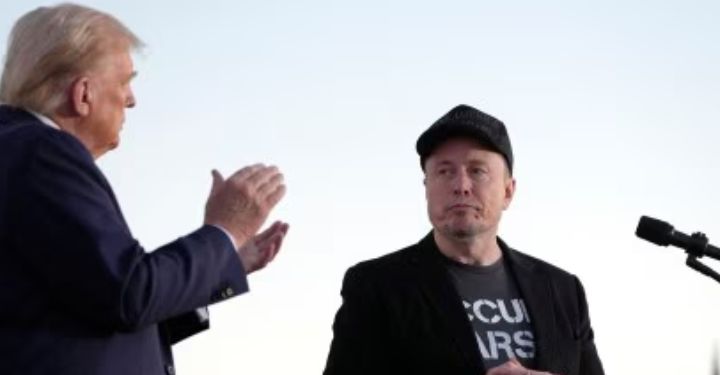Elon Musk has officially exited his role in the Trump administration, ending a short but highly publicized chapter as a Special Government Employee (SGE) and the inaugural leader of the Department of Government Efficiency (DOGE). Musk’s departure, framed by both sides as amicable and procedural, nonetheless reflects deeper conflicts between his vision for streamlined government and the broader political currents of Washington.
Appointed in early 2024, Musk entered public service under a unique arrangement that allowed him to advise and implement reforms while continuing his leadership roles at Tesla, SpaceX, Neuralink, and other ventures. It was, in many ways, an experiment: could one of the world’s most high-profile tech moguls revolutionize the way government operates?
For a brief period, it seemed he might. Musk wasted no time deploying the kind of rapid prototyping and data-driven analysis that defined his private-sector successes. He directed sweeping audits across dozens of agencies, built real-time digital spending dashboards, and reduced procurement delays through AI-assisted tools. Within six months, DOGE claimed over $25 billion in efficiency savings—though some figures were hotly contested.
But while his numbers were bold, so was his approach. Critics inside and outside government accused Musk of bulldozing over norms, dismissing public-sector complexity, and marginalizing voices that didn’t align with his aggressively technocratic mindset.
His decisions to eliminate entire offices—particularly DEI (Diversity, Equity, and Inclusion) programs—sparked national debate. Some lawmakers accused DOGE of targeting social equity initiatives under the guise of cost-saving. Musk defended the moves, arguing that “any department unable to justify its budget with data and outcomes shouldn’t exist.”
Despite controversy, Musk’s influence grew—until it collided with the Trump administration’s shift toward expansionary fiscal policy. The administration’s signature “One Big Beautiful Bill,” a sprawling legislative package packed with infrastructure and defense spending, drew a direct rebuke from Musk, who had spent the previous year trimming budgets and warning against what he called “pork barrel inflation.”
In one now-infamous post on X, Musk quipped, “If government waste was an Olympic sport, this bill just broke a world record.”
The post was reportedly the tipping point. While President Trump privately admired Musk’s efficiency rhetoric, senior staff began urging the White House to recalibrate. Musk’s outsider status had been useful during reform phases, but as the administration pivoted toward election-year spending promises, his critiques became increasingly unwelcome.
On May 28, the White House confirmed that Musk’s SGE designation had expired and would not be renewed. Officially, both parties cited the end of a planned advisory term. Unofficially, aides confirmed that the break had been in the works for weeks.
In a final memo circulated to DOGE staff, Musk wrote: “Reform requires alignment. When priorities drift, it’s better to pivot than to persist in conflict. Keep building. Keep optimizing.”
Reactions to his departure have been deeply split along ideological lines. Conservatives hailed his no-nonsense approach to government downsizing. Progressives criticized what they saw as the erosion of government services under the guise of tech-driven modernization.
Policy experts are equally divided. “Elon Musk brought a valuable perspective—aggressive, innovative, and unrelenting,” said Felix Grant, a public administration fellow at Harvard. “But in governance, sustainability often matters more than speed.”
DOGE’s future remains uncertain. No successor has been named, and some believe the department will be absorbed back into the Office of Management and Budget. Others believe its legacy will endure through tools and processes Musk introduced.
For Musk, the end of his government stint appears to be a return to familiar ground. He has already teased major announcements from Tesla AI and SpaceX Starship, and a new AI project rumored to rival OpenAI and Google.
Yet his brief venture into government may have lasting effects—not just on policy, but on public imagination. Musk’s stint raised new questions about the role of entrepreneurs in public life: Can business leaders improve governance? Or does the friction between innovation and institutions inevitably lead to failure?
Whatever the answer, Musk’s time in Washington was as bold, unconventional, and controversial as the man himself.
For More News updates : https://asiapedia.in
